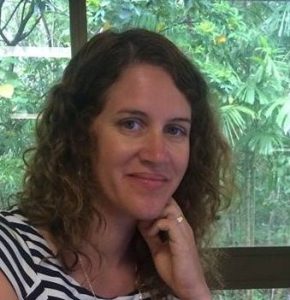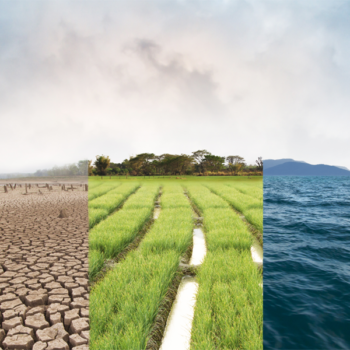Climate Change: A Unique Learning Moment
Climate change is the most urgent issue facing global society. It is increasingly affecting human health, species distribution and the ability of the earth’s ecosystems to sustain our physical, economic, social and environmental needs.
The UN Intergovernmental Panel on Climate Change (IPCC) released a report on October 8, 2018, warning that only a dozen years remain within which global warming can be kept to a maximum of 1.5 degrees C. Even half a degree matters and will significantly worsen the risks of drought, floods, extreme heat and poverty for hundreds of millions of people. This report raises questions on the responsibility public education has to respond to the impacts of climate change, and what role schools should play in preparing young learners for climate-altered futures.
How we deal with climate change is a critical discussion in which teachers and students should be actively engaged. It will be children and youth who will be living with the effects of climate change for decades to come. However, climate change is challenging and complex and is often referred to as a ‘wicked problem’ because there is no simple solution or silver bullet.[1] This has led some teachers to avoid the topic due to limited knowledge of the issue and lack of professional development.[2] As educators, we need to dispel the idea that we need to be subject experts to engage in climate change education and instead, we need to engage in emergent learning as new research surfaces and local impacts and opportunities arise.
Some teachers have also indicated that they avoid the topic due to fear of creating conflict with students, parents, colleagues or administrators who deny the existence of climate change.[3] However recent polling in Canada has shown that the vast majority (86%) of Canadians believe that there is solid evidence of climate change.[4] Climate change “deniers” are firmly in the minority and educating students about this significant issue should no longer be considered controversial amongst Canadians.
Climate change is most often taught within science subjects. However, climate change does not solely affect ecological systems, learning about climate change from a science-specific lens limits examining the dynamic connections between environmental, economic, political and social factors that underpin and cause climate change.[5] Therefore, climate change education is ideally investigated within an interdisciplinary framework, in which the natural sciences are employed to learn about climate systems, while the social sciences are engaged to conceptually grapple with, plan for, and communicate change.[6] Drawing on strategies from education initiatives such as Transformative Learning, Education for Sustainable Development, 21st Century Learning, and inquiry, teachers can facilitate rich learning experiences which begin with the knowledge and concerns students have about climate change. Approaching climate change through the local context offers valuable opportunities to evolve practice towards greater student understanding and engagement. Through knowledge building processes, learning from and with community members, experiencing local examples of climate change, critical reflection, and synthesizing learning into community-based action projects, students have the opportunity to engage directly with the issues affecting their lives and communities and more importantly contribute to developing mitigation and adaptation strategies. Connecting climate change to real world problem-solving cultivates creativity, innovation, community-collaboration, design‑thinking, and systems-thinking, all important skills for 21st Century learners.
A National Climate Change Education Survey is being undertaken by Learning for a Sustainable Future and Lakehead University, in collaboration with Leger Research Intelligence Group, and with support from SSHRC. The results of the survey will provide an understanding of current levels of knowledge and perceptions of climate change among the general public, parents, youth and educators and assess the needs of the education system in addressing climate change. The timing of this research aligns with the CTF-FCE’s commitment to be the leading national voice of teachers advocating for climate justice.
Climate change education can also contribute to safe and caring schools. The psychological impacts of hearing about environmental degradation and social problems related to climate change in the media, which predominantly uses disaster-framing, can be severe, especially for young learners. Taking an active, education-driven approach to the problem improves understanding and mitigates anxiety and stress caused by ecological grief.[7]
We are facing a unique learning moment: “Rather than shying away from looming climate change, the learning moment can be seized to think about what really and profoundly matters, to collectively envision a better future, and then to become practical visionaries in realizing the future.”[8]
[1] Rayne, 2006.
[2] Blum, Nazir, Breiting, Goh and Pedretti, 2013; Boon, 2010; Papadimitriou, 2004.
[3] Berger et al., 2015.
[4] EcoAnalytics, 2017.
[5] UNESCO, 2013.
[6] McKeown and Hopkins, 2010.
[7] Cunsolo and Landmann, 2017.
[8] Kagawa and Selby, 2010, p. 5.

Ellen Field is a SSHRC-funded postdoctoral researcher and Faculty at Lakehead University.

Pamela Schwartzberg is the President & CEO of Learning for a Sustainable Future.


